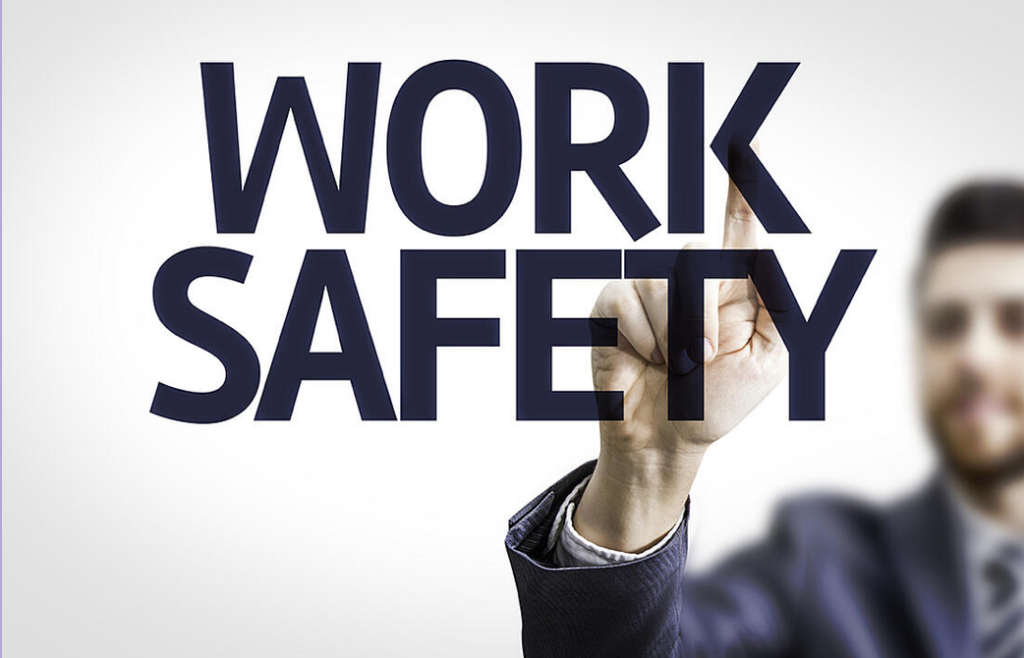AB FinWright/420CPA California HR Update
Happy Start of 2023!
We made it through the crazy start of 2023 that saw many changes including new minimum wages!

Remember to post your OSHA300A forms from February 1st through April 30th (links below). We are also highlighting compensation this month. This will be the last month we include the New Laws in 2023 for California in our monthly update. Feel free to reach out to us with questions.
Notice to employers!
Starting February 1st OSHA and Cal/OSHA require employers with 20 or more (federal) 10 or
more employees (CA) to post 2022 ‘s annual summary of work-related injuries and illnesses,
including COVID-19-related cases. Form 300A must be posted in a visible and accessible area
at all worksites between February 1st- April 30th.
Work-related injuries or illnesses include,
•Death
•Days away from work
•Medical treatment beyond first aid
•Loss of consciousness
•Significant injury or illness
Links to OSHA300 forms
For all States: https://www.osha.gov/sites/default/files/OSHA-RK-Forms-Package.pdf
For CA: https://www.dir.ca.gov/dosh/dosh_publications/reckeepoverview.pdf

Earned Wage Access
Research suggests that earned wage access is becoming more popular in how companies pay their employees. EWA is a revolutionary concept where employees can access their earned wages as early as the same day. Studies have shown that 60% of workers want on-demand pay, which increases a business’s ability to attract, retain and motivate employees. Simply having the option to request earned wages provides a higher sense of security for workers, even if they don’t utilize it. Earned wage access is an awesome way to stay ahead of the competition but there are some compliance items to think about. Here are 4 best practices when considering this benefit.
- Ensure you have written policies that are compliant with state and federal laws including privacy and Paycard laws.
- Get the consent of employees when sharing information to providers.
- Consider benefits, implications and withholdings.
- Research EWA providers and partner with experienced companies.
- Have an attorney review for compliance risk

Pay Transparency
The new pay transparency law in California requires employers with 15 or more employees to include salary on all job postings and employers with 100 or more employees must report pay data for existing employees. Pay data reports include the median and mean hourly rate for demographics, due on May 10, 2023 to the Civil Rights Department.
Whether your company falls under the pay transparency law or not it is important for you to understand where your company is falling short. Salary benchmarking may sound overwhelming but it can be helpful in attracting and retaining top talent. Some benefits include;
• Attracting and Retaining talent
• Increased motivation
• Establish trust and loyalty among employees
• Reduce pay inequality
We suggest taking the time to collect employee data including salaries, job responsibilities, and demographics (race, sex, sexual orientation, and education), then comparing it to your organization and similar companies to remain competitive.

CALIFORNIA EMPLOYERS
STATE MINIMUM WAGE UPDATE
Beginning January 1, 2023, the California state minimum wage will be $15.50/hour for all employers!
This state minimum wage rate is used to determine the salary threshold for most salary exempt positions. This means, for 2023, you will need to ensure all exempt employees earn at least $64,480 per year.
2023 Local Minimum Wage Rate Increases
These local minimum wage rate increases go into effect on January 1, 2023:
• Belmont: $16.75/hour
• Burlingame: $16.47/hour
• Cupertino: $17.20/hour
• Daly City: $16.07/hour
• El Cerrito: $17.35/hour
• Foster City: $16.50/hour
• Half Moon Bay: $16.45/hour
• Hayward: $16.34/hour for employers with 26 or more employees; $15.50/hour for employers with 25 or fewer employees
• Los Altos: $17.20/hour
• Menlo Park: $16.20/hour
• Mountain View: $18.15/hour
• Novato: $16.32/hour for employers with 100 or more employees; $16.07/hour for employers with 26-99 employees; $15.53/hour for employers with 1-25 employees;
• Oakland: $15.97/hour
• Palo Alto: $17.25/hour
• Petaluma: $17.06/hour
• Redwood City: $17/hour
• Richmond: $16.17/hour
• San Carlos: $16.32/hour
• San Diego (city): $16.30/hour
• San Jose: $17/hour
• San Mateo (city): $16.75/hour
• Santa Clara: $17.20/hour
• Santa Rosa: $17.06/hour
• Sonoma (city): $17/hour for employers with 26 or more employees; $16/hour for employers with 25 or fewer employees
• South San Francisco: $16.70/hour
• Sunnyvale: $17.95/hour
• West Hollywood: $17.50/hour for employers with 50 or more employees; $17/hour for employers with less than 50 employees.
REMINDER
*** NEW LAWS****
Pay Ranges
The California legislature passed a law requiring employers with 15 or more employees to provide the pay range for all positions including the publishment of each employer’s information on the internet. The purpose of the pay transparency bill is to increase pay equity within organizations, eliminating disparities. Employees that are aware of the pay structure in their company are found to have increased commitment. It is important to implement consistent protocol to ensure job ads reflect accurate pay scales. Using compensation benchmarks such as researching your industry’s market pricing for each position is one strategy to create fairness in wages. Employees are entitled to a nondiscriminatory workplace therefore; it is important to have yearly compensation reviews to guarantee that your company is striving for equitable pay ranges. If you need help determining the market rate for each position and pay ranges, please reach out to us! We can assist.
CCPA
As of January 1st, 2023, the California Privacy Rights Act (CPRA) eliminates employers and the business-to-business (B2B) exemption from the California Consumer Privacy Act (CCPA). This will apply to businesses that reside in California, have employees working in California, or have other connections to the state. Compliance with this act requires employers to provide notice before or during the time of collecting personal information including; categories of sensitive personal information, if this information is sold/shared, and the period employer intends to hold this information. Employers must also provide notice on why this information is being collected. Employees have the right to know, delete, correct, and opt out of sales/sharing of their personal information. The expansion for Business-to-Business (B2B) protects the personal information collected from business contacts and is subject to CPRA privacy rights. Ensure that your company updates the privacy notice, policy, and procedures, and review and update employee data incorporating personal information collected in employment and B2B context.
Emergencies, Cell Phone Use, and Reporting to Work
Currently, employers routinely have policies requiring reporting regardless of emergencies. They also prohibit using personal cell phones during working time. A new law requires an exception. The exception is an “emergency condition”.
In the event of an emergency condition, an employer shall not do either of the following:
- Take or threaten adverse action against any employee for refusing to report to, or leaving, a workplace or worksite within the affected area because the employee has a reasonable belief that the workplace or worksite is unsafe.
- Prevent any employee from accessing the employee’s mobile device or other communications device for seeking emergency assistance, assessing the safety of the situation, or communicating with a person to verify their safety.
Exceptions
Reporting to unsafe working areas does not apply to:
• First responders/disaster workers
• Employees required by law to render aid
• Employee or contractor of a health care facility who provides patient care
• Govt contractors for emergency services
• Bank employees
• Transportation employees participating in evacuations
• An employee whose primary duties include assisting members of the public to evacuate in case of emergency
* The law does not apply when emergency conditions that pose “an imminent and ongoing risk of harm to the workplace, the worksite, or the worker’s home have ceased.” An “emergency condition” does not include pandemic.
Expansion of California’s family and medical leave
AB 1041 expands family member to designated persons, who would be identified at the time the employee requests the leave. An employer would be allowed to limit an employee to one designated person per 12-month period.
Existing state law, the Healthy Workplaces, Healthy Families Act of 2014, generally entitles an employee who works in California for the same employer for 30 or more days within a year to paid sick days, including to care for an employee’s family member. AB 1041 expands the definition of the term “family member” to include a designated person.
The bill:
- Adds a definition of the term “designated person” to mean “any individual related by blood or whose association with the employee is the equivalent of a family relationship.
- The designated person may be identified by the employee at the time the employee requests the leave.
- An employer may limit an employee to one designated person per 12-month period for family care and medical leave.
Bereavement Pay
On October 3, 2022, Assembly Bill Number 1949 passed requiring employers with five or more employees to grant unpaid bereavement leave up to five days upon the death of a family member. California is the third state to mandate this time off.
This applies to an employee who has been employed for at least 30 days prior to the leave who lost a “family member” is eligible for this leave. A “family member” is defined as a spouse, child, parent, sibling, grandparent, grandchild, domestic partner, or parent-in-law (parent of a spouse or domestic partner).
Cannabis Protections
Assembly Bill 2188, provides additional protection to employees and applicants for off-the-clock cannabis use. Once in effect, employees can file a DFEH Civil Rights Department charge and a civil lawsuit with the same remedies as any other California discrimination claim, if their employer violates the bill. Though cannabis use is legal in CA, and lawful off-duty conduct during non-working hours is already protected by Labor Code 96(k), neither law affords employees the right to be under the influence during working time.
CALIFORNIA QUARANTINE CALCULATOR
Confused about the ever-changing requirements? This tool is helpful.
https://caconnected.cdph.ca.gov/agent/?id=24

COVID, COVID, COVID. We are all sick of hearing about it, but as it seems more and more likely that it is here to stay, we would like to turn your attention to a new tool released by the Center of Disease Control. A new quarantine and isolation calculator has been released by the CDC to help determine when to stay home, how long to isolate, quarantine, and what other steps to take to prevent COVID-19. Although this does not meet CalOSHA requirements, it is great for employers in other states! The tool can be accessed using the link HERE!




